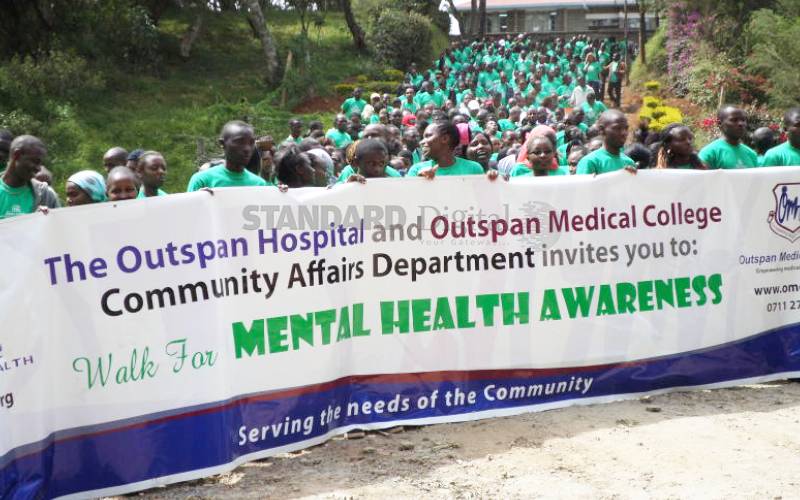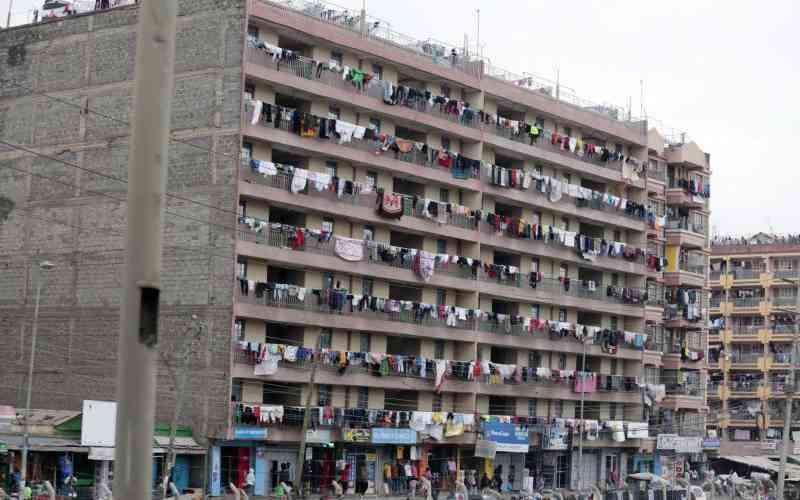There was a story that was on everyone’s lips in Ruai, Nairobi County. Last month, a tipper full of building materials pulled off the road and emptied its contents.
The building materials, the story goes, completely covered a culvert. Unbeknown to the driver, the culvert was the abode of a mentally ill man.
The man spent the day scavenging and slept inside the culvert at night. The lorry arrived early and the man was still in ‘bed’. He was buried alive.
His bed turned into his grave. His body was discovered only days later. Madness is a death sentence in this country.
This is sad, considering the high number of mentally ill people who roam every part of the country. In fact, whoever came up with the proverb ‘every market has a mad man’ must have had Kenya in mind.
Our don’t care attitude exposes those with mental illness to all manner of dangers; they are always on their own even when it rains cats and dogs.
They are also beaten and even raped by the sane and put through all manner of maltreatment but no one appears to take note.
In a nutshell, the country has left mentally ill people to their own devices. This is inhumane and utterly unacceptable.
In countries where human life is still valued as it should, you would be lucky to find a mentally ill person collecting papers and eating garbage as happens in Kenya daily. The mentally ill are rounded up and taken hospitals.
There is no reason why we shouldn’t be able to do this in Kenya. And the law is not the impediment. We have progressive law on mental health, which has been amended (via Mental Health (Amendment) Bill 2018) to make it more palatable.
According to the law, every person has a right to the highest attainable standard of mental health services, including “physical and mental medical health care, counselling, rehabilitation; and after-care support. But then, why do mental patients continue to get a raw deal?
The truth is that nothing much has been done to increase the number of mental hospitals and the public ones are rundown due to poor funding. In addition the number of psychiatrists is extremely low--there were only 92 in the country 2015 instead of the required 1,533. In the same year, there were 327 psychiatrist nurses instead of 7,666.
The cost of treatment in private facilities is extremely high and out of reach for needy Kenyans. We have terribly failed the mentally ill and we need to change now. We should never forget that the greatness of a nation is partly judged by how it treats its weakest member.
 The Standard Group Plc is a
multi-media organization with investments in media platforms spanning newspaper
print operations, television, radio broadcasting, digital and online services. The
Standard Group is recognized as a leading multi-media house in Kenya with a key
influence in matters of national and international interest.
The Standard Group Plc is a
multi-media organization with investments in media platforms spanning newspaper
print operations, television, radio broadcasting, digital and online services. The
Standard Group is recognized as a leading multi-media house in Kenya with a key
influence in matters of national and international interest.
 The Standard Group Plc is a
multi-media organization with investments in media platforms spanning newspaper
print operations, television, radio broadcasting, digital and online services. The
Standard Group is recognized as a leading multi-media house in Kenya with a key
influence in matters of national and international interest.
The Standard Group Plc is a
multi-media organization with investments in media platforms spanning newspaper
print operations, television, radio broadcasting, digital and online services. The
Standard Group is recognized as a leading multi-media house in Kenya with a key
influence in matters of national and international interest.










